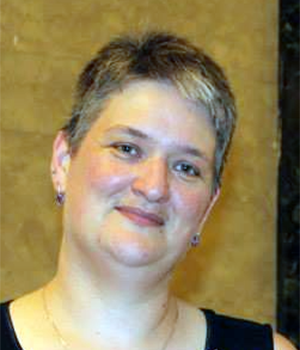
- grodger@uwm.edu
- 414-251-8972
- Music Building 130B
Gillian Rodger
- Professor, Musicology & Ethnomusicology
- Chair, Department of Music
Education
PhD, Ethnomusicology, University of Pittsburgh
MM, Ethnomusicology, UW-Madison
BA, Education (Music, Secondary), University of Melbourne, Australia
Biography
Gillian Rodger’s on-going research interests cluster around popular musical theater of nineteenth-century America and working-class popular culture. She has written a monographs, Champagne Charlie and Pretty Jemima (University of Illinois Press, 2010) that explores the early history of variety theater (the form that preceded vaudeville) and its connections to other musical theater forms including minstrelsy and burlesque. Her second book, Just One of the Boys (University of Illinois Press, 2018), considers male impersonation in the context of U.S. variety entertainment. She has also written about theater law and moral reform in New York State, showing how variety theaters were run, and, indeed, how what could appear on their stages was shaped to a large extent by changes to theater law and the threat of police raids. Her article, “’He isn’t a marrying man’: Gender and Sexuality in the Repertoire of Male Impersonators, 1870-1920," reveals that until the 1890s or later, female-to-male cross-dressed performances were intended to subvert class rather than gender or sexuality. Her most recent work focuses on vaudeville history and seeks to reframe the narrative in a way that connects her work to the established history of the form. She is also working on a project centered on the music of Tony Pastor's theater.
Dr. Rodger’s work on popular culture extends to the late-twentieth century. She has examined the performance strategies employed by the Scottish singer Annie Lennox, arguing that this performer employs tactics not unlike those of nineteenth-century character singers in her approach to music, and through this performance provides an on-going and cutting critique of gender.
In all of her work Rodger focuses on song and singing, and particularly on song as a dramatic moment. She argues that in non-narrative theater--that is, theater without a linking or overarching narrative structure--song functions to provide narrative periods in the performer’s act. Popular songs of the late nineteenth and early twentieth centuries relied heavily on stereotypical characters and scenarios and the skills of the performers were instrumental in bringing these songs to life.